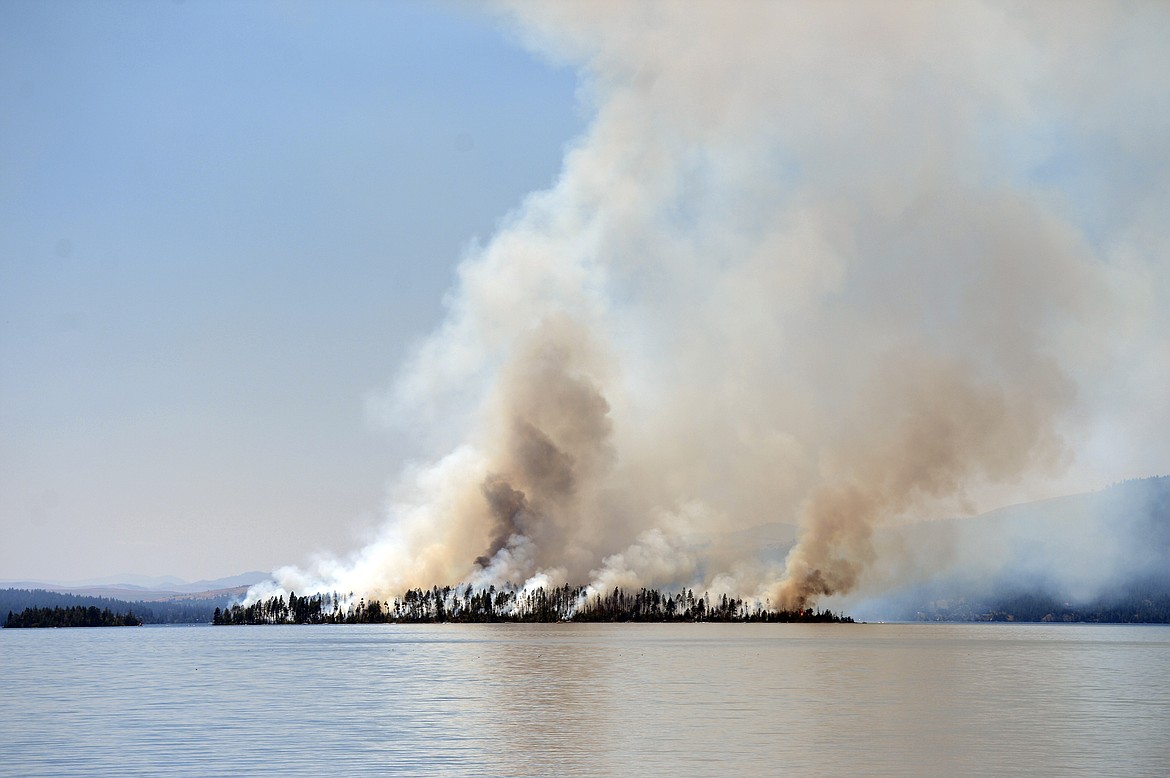Management plan selected for Flathead Lake islands
A management plan for public recreation on four popular Flathead Lake islands is moving forward.
Montana Fish, Wildlife and Parks issued a decision notice Jan. 5 that outlines specific plans for Bird, Cedar, Douglas and Goose islands. The plan includes the creation of some designated campsites, the addition of toilets on two islands, and new restrictions on campfires.
According to state officials, recreational use of the islands continues to grow along with impacts to wildlife habitat. While visitation data is not recorded on the Flathead Lake islands, “anecdotally” state officials suggest that use of the islands has about doubled over the last decade.
According to the Environmental Assessment Decision Notice, among the most concerning impacts is the lack of restroom facilities on the islands.
“During peak summer months, heavy day use, and overnight visitation has been documented on Cedar and Bird Islands, and has resulted in large amounts of human feces and waste,” the notice states. “With growing use, litter is also persistent, and vandalism has been extreme, particularly at the Cedar Island homestead site.”
Human-caused wildfires are also concerning, particularly after Bird Island was charred in the summer of 2020.
“Although no definitive cause was clearly identified [of the Bird Island fire], FWP staff have documented and cleaned up numerous fire rings and associated burn-pile debris on both Bird and Cedar islands,” the notice states.
Increasing use has also resulted in extensive trail development and soil compaction at high-use locations, particularly on Cedar Island.
State officials worked with a planning committee of various stakeholders to develop the framework for recreation management on the islands. Public comment was taken last fall through a draft environmental assessment process, garnering 46 submissions.
Based on review of public comments and best management practices, the state recommended Alternative B for its management plan.
The alternative establishes first-come, first-serve designated campsites for overnight stays on Bird and Cedar islands. These campsites will be in traditional use areas to limit proliferation of additional sites and overall impacts to the island's wildlife habitat.
Bird island will have three campsites, with six on Cedar. Campsites will be restricted to four people per site, and visits will be limited to three overnights within a two-week period.
Camping will not be permitted on Douglas and Goose islands to conserve wildlife habitat, and to conform with existing Wildlife Habitat Protection Areas management.
Self-service fee stations will be located at each camp area.
Composting toilets will be installed on both Bird and Cedar islands. A minimal trail system will connect campsites and the composting toilet on Cedar Island.
The Parks and Outdoor Recreation Division will maintain the toilets and campsites. Campsites that are not connected by trail to the toilets will require packing out all waste, including human feces.
Signs and informational kiosks will be installed on all four islands to inform people of the islands' history, management goals, seasonal closures and public use regulations.
All recreational use (day use and camping) will be prohibited during the waterfowl nesting season (March 1-July 15) on Bird, Douglas and Goose islands.
Campfires will not be allowed on Bird and Cedar islands, but gas or propane fueled camp stoves will be permitted in accordance with prevailing fire restrictions.
No campfires or camp stoves will be allowed on Douglas and Goose islands.
Additional details on these proposals, including other management action, are available online at https://fwp.mt.gov/news/public-notices


